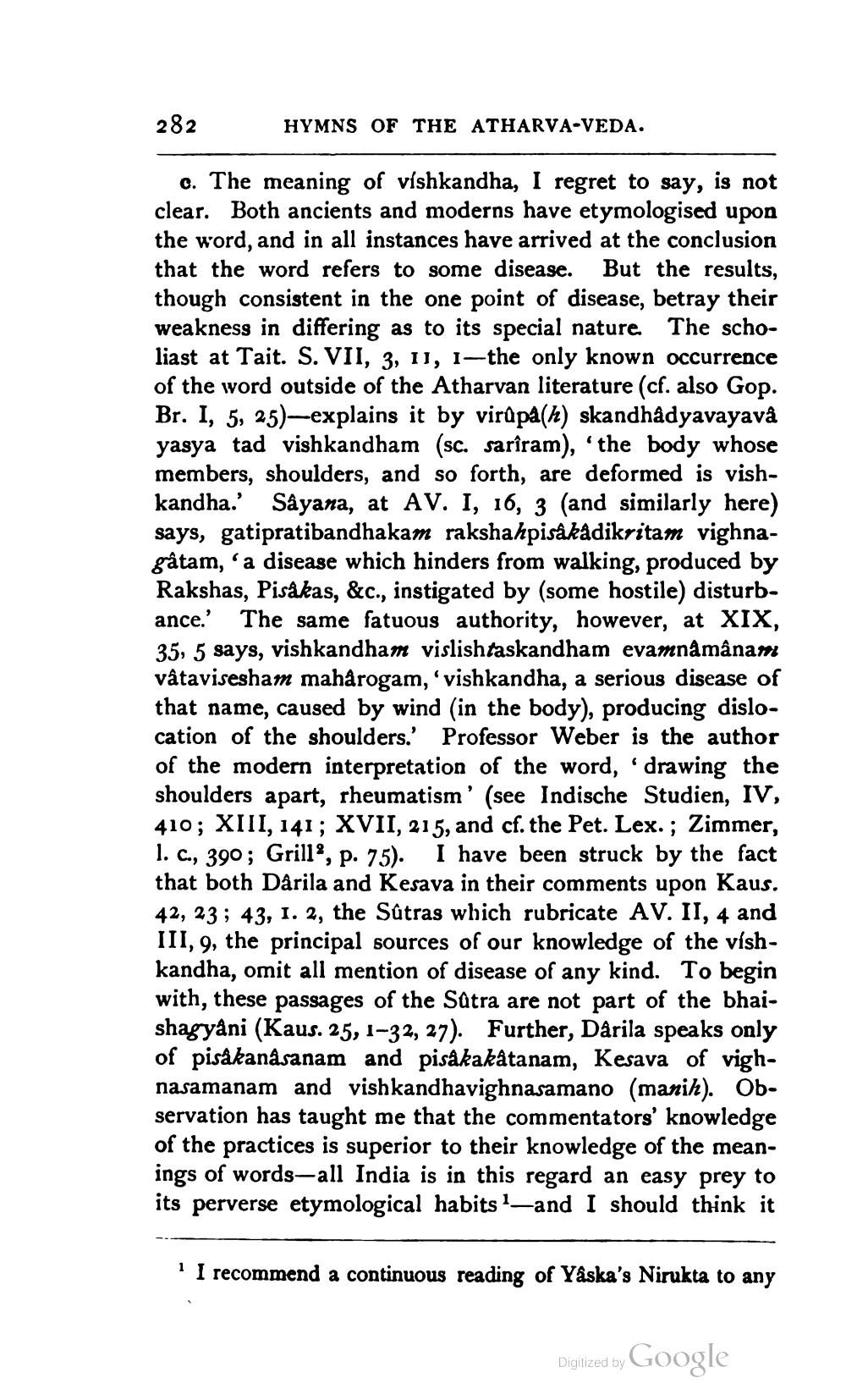________________
282
HYMNS OF THE ATHARVA-VEDA.
c. The meaning of víshkandha, I regret to say, is not clear. Both ancients and moderns have etymologised upon the word, and in all instances have arrived at the conclusion that the word refers to some disease. But the results, though consistent in the one point of disease, betray their weakness in differing as to its special nature. The scholiast at Tait. S. VII, 3, 11, 1-the only known occurrence of the word outside of the Atharvan literature (cf. also Gop. Br. I, 5, 25)-explains it by virûpa () skandhådyavayavá yasya tad vishkandham (sc. sarîram), 'the body whose members, shoulders, and so forth, are deformed is vishkandha. Sayana, at AV. I, 16, 3 (and similarly here) says, gatipratibandhakam rakshahpisåkadikritam vighnagâtam, a disease which hinders from walking, produced by Rakshas, Pisakas, &c., instigated by (some hostile) disturbance. The same fatuous authority, however, at XIX, 35, 5 says, vishkandham vislishtaskandham evamnamânam vâtavisesham mahårogam, vishkandha, a serious disease of that name, caused by wind (in the body), producing dislocation of the shoulders.' Professor Weber is the author of the modern interpretation of the word, 'drawing the shoulders apart, rheumatism' (see Indische Studien, IV, 410; XIII, 141; XVII, 215, and cf. the Pet. Lex. ; Zimmer, 1. C., 390; Grill”, p. 75). I have been struck by the fact that both Darila and Kesava in their comments upon Kaus. 42, 23; 43, 1. 2, the Satras which rubricate AV. II, 4 and III, 9, the principal sources of our knowledge of the vishkandha, omit all mention of disease of any kind. To begin with, these passages of the Satra are not part of the bhaishagyâni (Kaus. 25, 1–32, 27). Further, Darila speaks only of pisåkanâsanam and pisákakatanam, Kesava of vighnasamanam and vishkandhavighnasamano (manih). Observation has taught me that the commentators' knowledge of the practices is superior to their knowledge of the meanings of words-all India is in this regard an easy prey to its perverse etymological habits and I should think it
· I recommend a continuous reading of Yaska's Nirukta to any
Digitized by Google




